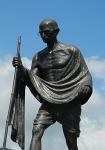Ahead of Chinese Foreign Minister Li Zhaoxing's visit, a Chinese political advisor has accused India of triggering the 1962 Sino-Indian war and cited Beijing's "unilateral" withdrawal after the skirmish as an example of the Communist giant's "peaceful intentions."
"China is a neighbour to a record number of 15 countries, and for historical reasons, it has territorial disputes with nearly each and every one of them," Lau Nai-keung, a member of the National Committee of the Chinese People's Political Consultative Conference, said.
In a commentary entitled 'China's re-emergence should be welcomed' in the state-run China Daily, Lau, a Hong Kong-based politician wrote that for many years China has been trying to resolve conflicts with neighbours through peaceful means.
"One by one, we have settled national boundary lines without resorting to war," he wrote ahead of Li Zhaoxing's visit to India from February 11.
Turning to India, Lau wrote, "Our relations with India have been tense for many decades. The two countries even went to war in 1962. By all accounts, even those of India's own investigation, China was the country attacked."
He quoted former Chinese premier Zhou En Lai as saying that "we sent three open telegrams to (Jawaharlal) Nehru asking him to make a public reply, but he refused. He was so discourteous; he wouldn't even do us the courtesy of replying, so we had no choice but to drive him out."
"To the surprise of the world, China announced its unilateral and unconditional withdrawal to 20 km behind the disputed McMahon Line," he said quoting Zhou.
Lau noted that China and India are now on friendly terms with growing economic ties, and they are closer than ever to a cordial agreement on their borders.





